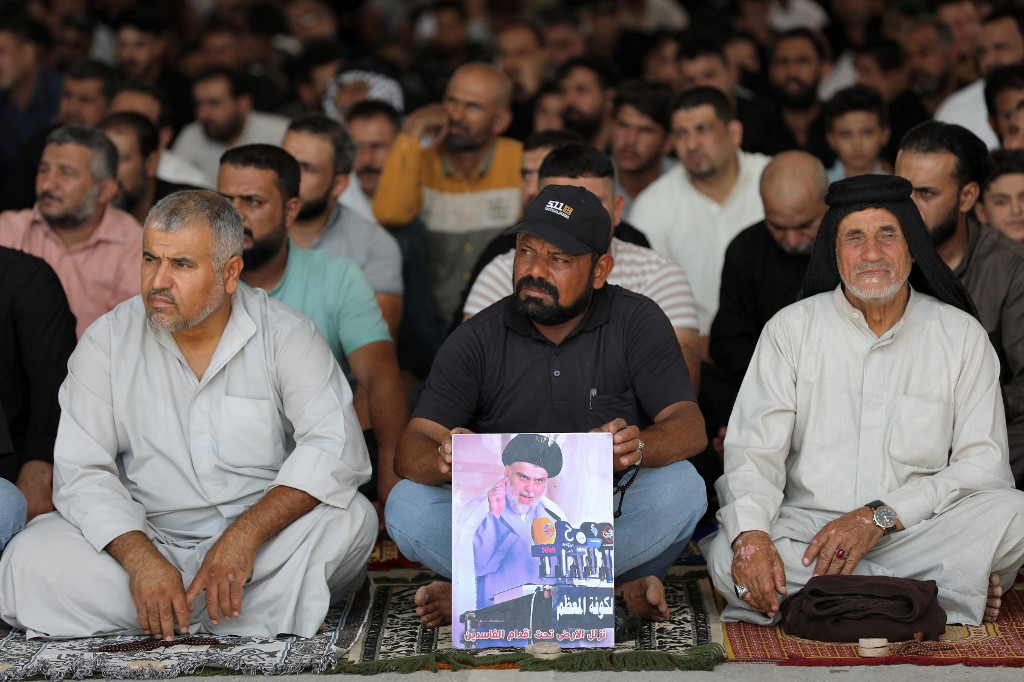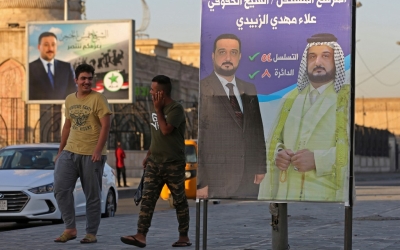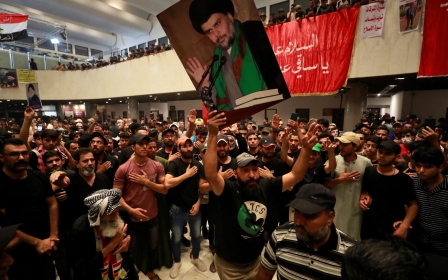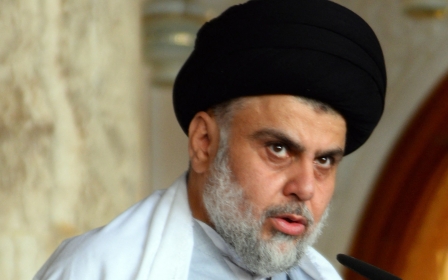How Iraq's politics have come full circle
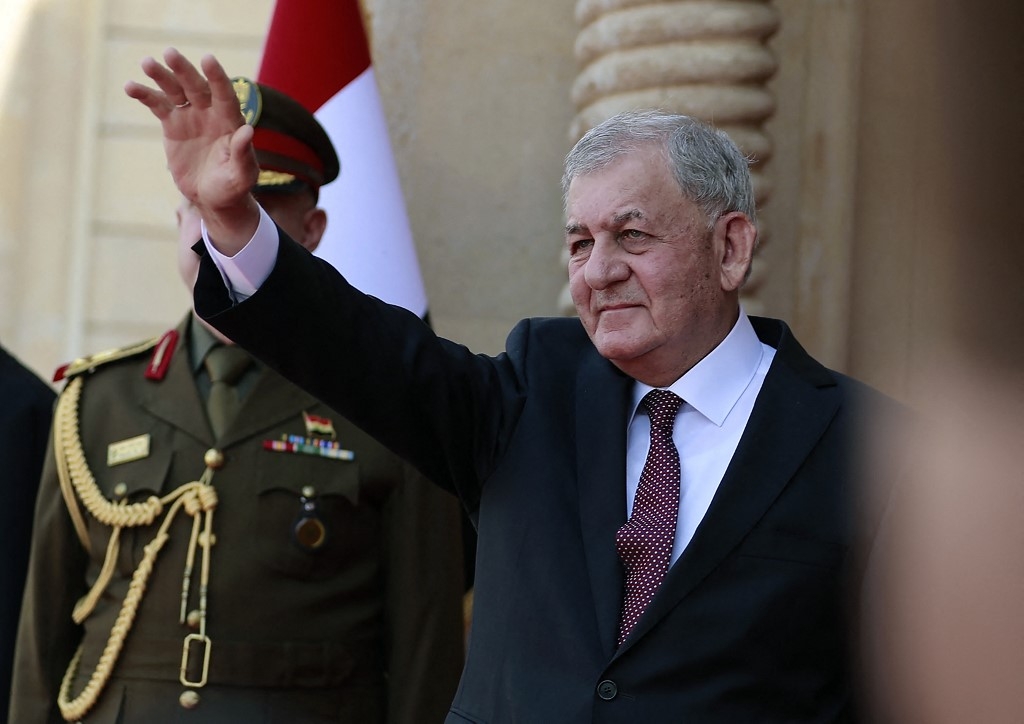
Iraqi leader Muqtada al-Sadr’s party won the October 2021 parliamentary elections with an even stronger showing than its 2018 electoral upset. But it has taken a year for the country to form a government - and the Sadrists, despite their victory, played no role in picking the new Iraqi president or prime minister last week.
That the winning electoral party gave up out of sheer frustration means that the new government lacks legitimacy, which does not bode well for Iraq’s future security, still precarious two decades after the 2003 invasion.
The latest government formation process has preserved the power of the post-2003 elites
The elections last year were called amid demands from a protest movement that emerged in October 2019 against government corruption and entrenched ethno-sectarian clientelism. The new government represents a continuation and victory for ethno-sectarian elites, who will have to mitigate interrelated economic, environmental and international crises.
The Tishreen movement that broke out in October 2019 blamed the country’s elites for corruption, unemployment and unreliable services, such as water and electricity. Protests led to the resignation in December 2019 of Prime Minister Adel Abdul Mahdi, along with the emergence of a caretaker government until last October’s elections, in which 3,200 candidates ran for 329 parliamentary seats. The record-low voter turnout of 41 percent reflected the general public apathy.
The Sadrist bloc won 73 seats, up from 54 three years earlier. They won due to their organisation and efficient mobilisation drive, including a mobile app that gave voters the name of the Sadrist candidate in their constituency, their nearest polling station, and information about the necessary documentation for voting.
New MEE newsletter: Jerusalem Dispatch
Sign up to get the latest insights and analysis on Israel-Palestine, alongside Turkey Unpacked and other MEE newsletters
Key players
As for Arab Sunni factions, Speaker Mohammed al-Halbousi, who leads the Progress alliance, came in second overall with 38 seats. Meanwhile, the Kurdistan Democratic Party, led by Masoud Barzani, won in districts centred around Erbil, obtaining 32 seats and forming an alliance with the Sadrists, in an effort to ensure they would be the key players in forming a new government.
The losers included Hadi al-Amiri’s Conquest coalition, featuring a list of candidates from the Iran-backed Iraqi militias, which was reduced to 14 seats - less than a third of what it had secured in 2018. Former Prime Minister Nouri al-Maliki’s State of Law coalition performed well, earning third place overall with 37 seats, but it could not form a coalition with the Sadrists, given their historic animosity.
The Sadrists, Progress and the Kurdistan Democratic Party together had a total of 143 seats, still short of a majority - and their rivals were able to team up to block them from forming a government.
In the past, Shia factions have been awarded ministerial posts based on their electoral performance. Since Sadr’s alliance did not secure a majority, he was expected to give cabinet posts to rival Shia factions - but instead, he sought to exclude Maliki and the Iran-aligned groups from government, essentially compelling them to serve as opposition.
Amiri and Maliki, joining forces with a number of other groups in a new faction called the Coordination Framework, stymied the Sadrists’ attempts to form a government. This summer, Sadr ordered his candidates to resign from parliament, which ultimately shifted the balance in favour of his rivals.
As part of a deal between Kurdish and Shia factions, Abdel Latif Rashid, a compromise candidate, was nominated for the presidency, and he was formally elected by parliament last week. He has now tasked his prime minister, Mohammed al-Sudani, with forming a government.
Intersecting crises
What will now ensue is a return to the consociational politics of allocating the best ministerial posts to the victors, in this case the Coordination Framework. The 2019 protesters rallied against this very system and concomitant problems of corruption and Iranian influence in Iraq’s domestic affairs. Yet, the latest government formation process has preserved the power of the post-2003 elites who seek to preserve the status quo.
Without the Sadrists, the new government will lack broad legitimacy. This comes at a time when the new prime minister and his cabinet will have to deal with an economic crisis, environmental issues and regional tensions, which will require a balancing act between the US and factions sympathetic to Iran.
On the economic front, Iraq will enjoy a windfall of oil revenues due to the recent Opec+ agreement - but amid entrenched corruption, this will not necessarily translate into job creation for the masses or improvements to infrastructure.
As for the environment, Latif Rashid was a former water minister, while Sudani was a former minister of agriculture. Ideally, this combination makes both figures qualified to deal with Iraq’s unprecedented ecological crisis, including intense sandstorms and the drying up of lakes and reservoirs due to drought. But the presidency is mostly a symbolic position, and Sudani will have to navigate myriad corrupt fiefdoms ensconced in the Iraqi state - a good number of which are to blame for its failure to tackle the environmental problems in the first place.
Iraq just endured another brutally hot summer without a government in place to address the endemic failures in basic services, such as the provision of water and electricity for air conditioning. Now, it could face a new wave of protests affiliated with the long-simmering Tishreen movement, in addition to the Sadrists decrying the deteriorating political environment.
These problems led to the October 2019 protests in the first place, spurring early elections in October 2021. In the past three years, across three Octobers, Iraq’s politics have come full circle.
The views expressed in this article belong to the author and do not necessarily reflect the editorial policy of Middle East Eye.
Middle East Eye delivers independent and unrivalled coverage and analysis of the Middle East, North Africa and beyond. To learn more about republishing this content and the associated fees, please fill out this form. More about MEE can be found here.



